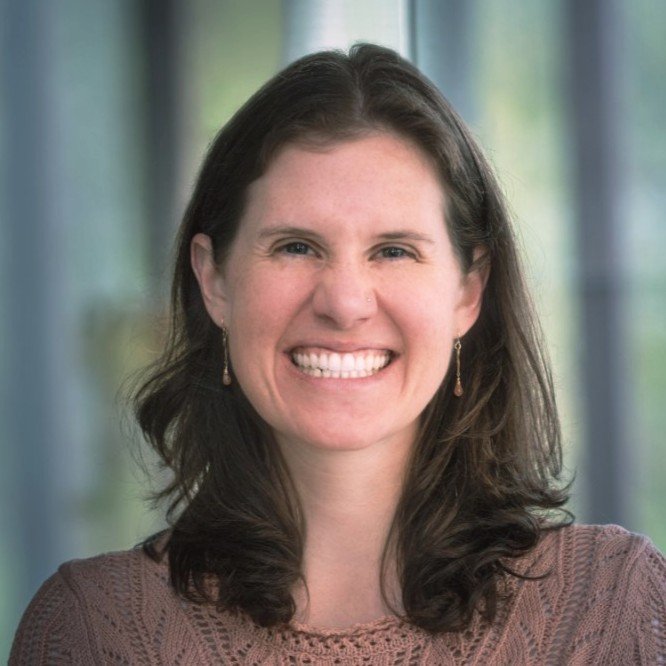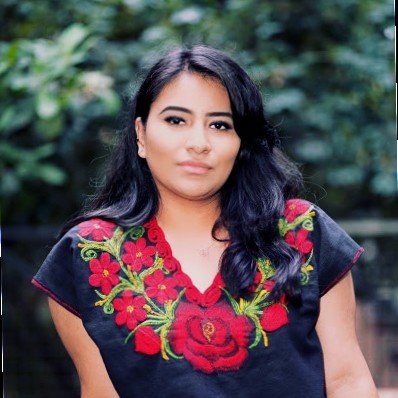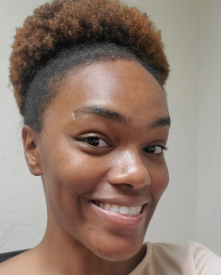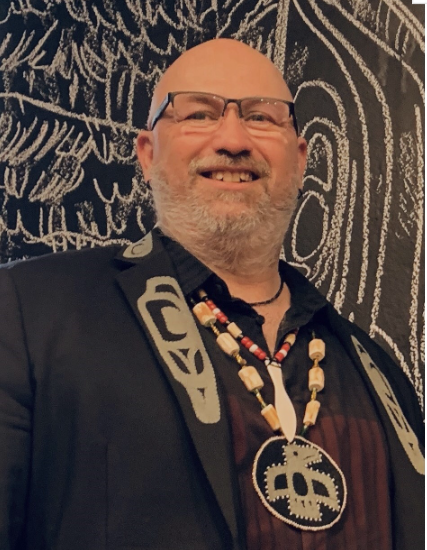David Keyes
Digital Equity Advisor, City of Seattle
Interview by Lars Vik & Maya Totonchi
November 14, 2022
City of Seattle’s Digital Equity Advisor, David Keyes, speaks on his experiences witnessing Digital Equity’s progression over the past 25 years as well as some of its highlights in recent years. We take a look at notable Digital Equity efforts that are being developed locally, statewide, and nationally. Acknowledging these efforts and forming a coalition has proven to be a valuable strategy in understanding the different aspects of Digital Equity as well as discovering permanent solutions in order to close the digital divide.
Q. What is your definition of Digital Equity, and what about it motivates you? What are you passionate about in this space?
DK: Digital Equity is the value we hold that everybody should have the opportunity to communicate, contribute, exchange, and create content with each other while having the ability to succeed using the tools which are necessary to do so. Specifically, digital equity is the focus on information and communications technology where it serves as just one aspect in supporting broader race and social justice equity. We’re addressing systems that have created historical inequity and providing new opportunities for people. As we think about the specific elements of Digital Equity, we typically look at four different aspects of it.
First there’s having access to internet which is affordable, sufficient, and reliable enough to both download and upload in order to contribute content. There’s also ensuring individuals have access to devices that are necessary to be productive, create content, and participate both at home and on the go. It’s important to have one that has adequate hardware as well as a large enough screen so users can fill out other Digital Equity applications and so on. The third is digital skills and knowledge to use equipment, applications, and the Internet. The skills serve as a foundation so individuals can learn to the next level and beyond. Part of this is also having proper tech support and digital navigation systems so that when something isn’t working properly people know where to go to get assistance. Lastly, there’s applications and services and how they’re designed. Digital Equity includes diverse users from a variety of different literacies. It’s thinking about the placement and design of online services so that people with varying needs are able to have them met. For instance, things like meeting screen reader requirements so individuals are able to use applications and services. Or if something is in a language foreign to someone, they have the proper resources for learning or training.
What makes me passionate about this kind of work is I get really excited seeing voices rise together all while witnessing these different voices and cultures at once. Seeing everyone’s creative process and excitement once something new is created or achieved has been really fulfilling to me. Having more diversity in content where people are also at the table that are participating and communicating with each other. I enjoy seeing people gaining the confidence to go to the next step where our work opens a new world of possibilities for someone. This could take form in discovering a world or new job possibilities or being comfortable to participate in a city meeting after learning where to access its resources such as getting on Zoom to participate in calls. Those are some of the things that excite me. Engaging with a collective of groups working together and having that collaboration to find new solutions.
“Digital Equity is the value we hold that everybody should have the opportunity to communicate, contribute, exchange, and create content with each other while having the ability to succeed using the tools which are necessary to do so.”
Q. What values and/or principles are important for everyone in this space to do good work?
DK: The core value and principle I believe in is that everybody should have the opportunity to use digital tools since they act as a gateway to other tools and other equities. There’s also the value in collaborating to do good work as well as having the willingness to listen to everyone. I see this as putting yourself out there and understanding the barriers that exist and what challenges people might have. Listening to what’s been successful and what resources or solutions can work is also important. And then with the value of collaboration, I have realized from my involvement with the city that we don’t have the resources or knowledge to solve the issue of Digital Equity ourselves. We have to be a connective tissue bringing together and uplifting those that are on the front lines, helping underserved folks, vulnerable communities. Also Including those who can help solve problems or provide resources that might be valuable to others. That collaboration and convening while being willing to create a platform for people to come together and find solutions. We have a commitment to this cause and it proves to be an important value that enables us to do good work. One last thing I should mention is the ability or willingness to commit time and funding to this cause.
Q. What have been big wins for you and how did they happen? What sorts of support were needed for them?
DK: A big win for me and the city is the establishment and continuity of having a functional Digital Equity program as part of the city. That includes having our established technology matching fund grant program and having it continue for over 25 years from now. The real big win from that is going around the city and seeing community organizations that have helped people gain access to computers, internet, and training. This means a place where individuals can learn to use the Internet and have access to its services or ways to learn English. Seeing individual folks that have benefited from those investments is the really big win.
The structural win and how it happened is that we were able to rally our commitment in local government through elected officials such as Seattle Mayor Bruce Harrell and the current City Council to continue to support these efforts. Additionally, being able to bring different folks to the table so that we now have a Digital Equity Learning Network where industry people come together with community organizations, school systems, public housing, and government. It’s important to have people at the table working together.
One of the other big wins is getting the Federal Digital Equity Act passed as part of the Federal Infrastructure Bill so $2.75 billion goes towards digital equity work. It started with a lot of activism from communities and raising awareness of its need. With Senator Murry being interested in it we were able to sit down and work on what would be needed and what should be included in the Federal Bill around Digital Equity. Rallying support for this from a variety of organizations across the country as well as media support has really helped move it forward so now it’s a Federal program which supports work in all the states.
Q. What is your organization’s goal in moving towards digital equity? What steps are being made by your organization to reach that vision?
DK: Our goal and vision is ensuring that all residents and neighborhoods have the information technology capacity for civic and cultural participation, employment, learning, access to services, and for social inclusion. To have the ability to communicate with each other. Ensuring that we’re not just working on equality, but on equity while taking action which addresses historically underserved communities.
One step we made started in 2016 where we conducted a Digital Equity action plan which identified possible strategies with varying participation from community leaders and members of the public. Then in 2020 as COVID hit, the City Council and Mayor adopted a Internet For All Resolution with goals of enabling all residents to access and adopt broadband internet service. That’s provided some guiding strategies around working to help improve student access as well as affordable internet and device distribution for underserved communities.
We’re really working to increase awareness and help enrollment on low income internet programs such as the Federal Affordable Connectivity Program (internet subsidy). A keystone of our strategies has also been The Technology Matching Fund Grant and more recently digital navigator grants. We partner and help support people on the front lines who also help people who need to have language and cultural skills the most. This continued collaboration and investment is a critical strategy we use to support and partner with community based organizations. Another strategy we use is gathering data to help understand needs and stories. One way is through a technology access and adoption research study, which we’re working on updating. Another is through focus groups. That helps give us data which we can then feed into the Internet For All dashboard so that we understand the levels of adoption and barriers as a measure of progress.
One side note regarding these grants is that the American Recovery Plan Act funds have also helped increase the Internet for All Grant program in the last couple of years. This strategy of partnering and using/applying state and federal funds has also been helpful. One of the last ones is that we’re also working in the policy area. We think about questions like: “How can we put into place other policies so that it influences things to help us move forward?” That type of work is being achieved by providing comments for the Federal Communications Commision so that we are able to gauge how the Affordable Connectivity Program has been rolling out. It’s also work that we've done to help shape the Federal Digital Equity Act which is part of the infrastructure bill providing $2.75 billion towards Digital Equity.
We also work closely with the state as they continue to develop their program plan. One example that this policy advocacy has helped impact has been the state’s digital navigator funding. With the Mayor being in The U.S. Conference of Mayors, we’re able to work locally and across the country convening others and spreading the influence of Digital Equity as we keep moving forward with technology and social policy.
Q. What’s an example of some good work so far and who’s been doing it? Who would you like to give a shout-out to?
DK: There’s a lot of really good long-standing Digital Equity work out there, where people have committed themselves to helping others recognize its importance. This includes individuals like Asfaha Lemlem who is now the Digital Equity Manager for Seattle Housing Authority. Or Assaye Abunie who started working at an Ethiopian community center aiming to teach kids language and computer skills, then as COVID hit he started up a digital navigators program at Yesler. That program has been training high schoolers and young adults for this work by helping residents with tech support, digital skills, as well as signing them up for low income internet programs; all while giving job training for those digital navigators. This model has led to an even larger expanded digital navigator program where Asfasha and others at Seattle Housing Authority are also doing this work.
The second group of shout outs I think are the folks on the front lines helping out people in the community. Folks at the Chinese Information and Service Center such as Karia Wong or other folks at Villa Comunitaria who work day in and day out helping community members learn English, technology skills, and job skills. The folks at Seattle Jobs Initiative are another good example of a digital bridge program. We worked with them a couple of years ago and they are doing some great work integrating a way for helping people find jobs and get job training. They recognize that digital skills are a foundational aspect of helping people get into that job training and job development. Having these primary skills are important since they’re necessary for getting to those secondary skills which are important in your career. There's also other organizations like Computing For All who work with teams of people to help build these career paths. And so these are just a few of many organizations out there that I’d like to shout out.
Learn more about the digital equity work of the City of Seattle.
Connect with David Keyes on LinkedIn.
Affordable Connectivity Program: https://www.fcc.gov/acp
Internet For All: https://www.internetforall.gov/
Seattle Housing Authority: https://www.seattlehousing.org/
Villa Communitaria: https://villacomunitaria.org/
Chinese Information and Service Center: https://cisc-seattle.org/
Computing for All: https://www.computingforall.org/






